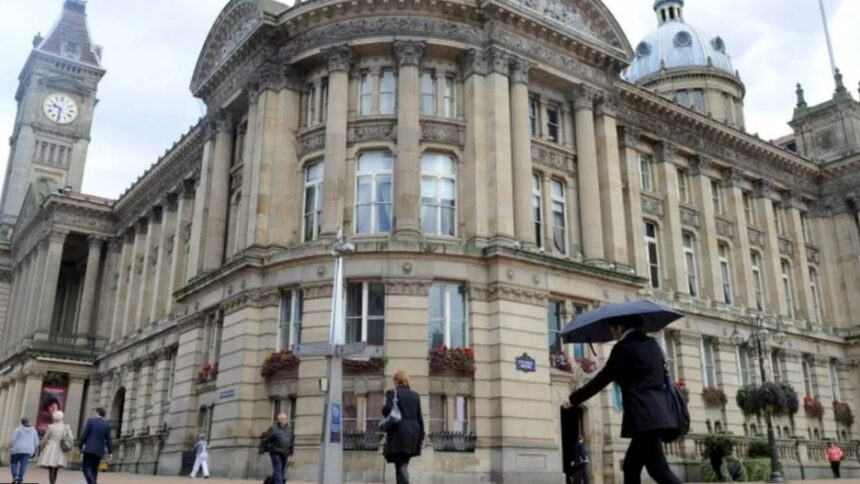Birmingham, the second-biggest city in Britain, declared itself bankrupt on Tuesday, shutting down all non-essential spending after being issued with equal pay claims totaling up to $954 million. The Birmingham City Council filed a Section 114 notice on Tuesday, halting all spending except for essential services.
In the notice, the city council said it was currently in a negative general fund position because of the cost of providing for equal pay claims. The claims, it said, would result in exceeding the financial resources available to the council. “This means that spending due within that period exceeded the financial resources available to the council in that same period.”
The potential cost of new equal pay claims would be between £650 million (around $816 million) and £760 million (around $954 million), the notice further said, adding that the council does not have sufficient resources to cover this potential liability. “It is likely that the Council will need to recognise this liability in the current or previous financial years which will result in a negative General fund balance. This is an unsustainable financial position for the Council to be in.”
In the backdrop of the crisis, the notice said, the council is prevented from entering into any new agreement or commitment for expenditure and all non-essential expenditure will now stop with immediate effect. The Birmingham City Council provides services for more than one million people, according to CNN. Birmingham, the largest multicultural city in central England, had hosted last year’s Commonwealth Games.
In June this year, the council had said it was in talks with the government after revealing it had to pay up to £760 million to settle equal pay claims. The bill was equivalent to its entire annual spending on services and was growing by up to £14 million each month, BBC said in a report in June.
In 2012, Britain’s Supreme Court directed the council to pay claims made by hundreds of women for the monetary discrimination they suffered. The apex court had found that hundreds of mostly female employees working in roles such as teaching assistants, cleaners, and catering staff missed out on bonuses that were given to staff in traditionally male-dominated roles such as refuse collectors and street cleaners, BBC said.








